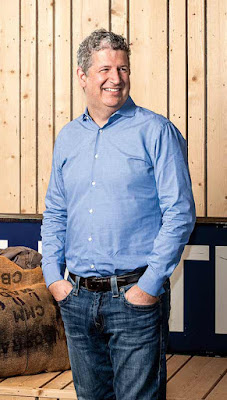When
I was in high school, some 30 years ago, I studied abroad for two years
in a small Italian village where no one spoke English. Even when I went
to a city, such as Venice, I rarely found people who spoke my native
language. That has changed completely. You can do business in English
almost anywhere in the developed world, with the possible exception of
Japan.
But
in a global consumer-facing business, there’s no question that you must
speak the language of your customers, wherever they are. At
Booking.com, The Priceline Group’s largest global business (it operates
in more than 220 countries and territories), we work hard to meet that
goal by employing people who can answer calls in dozens of languages.
Even
though we’re designed to facilitate online reservations, travelers call
us for all sorts of reasons. Travel is a big-ticket item, and people
want to get it right. Sometimes they want to confirm the details, or
they don’t realize they can make changes online. Sometimes they simply
want to talk to a human being.
The Path to the Priceline Group
I (
Darren Huston)
grew up in Canada, where I spoke English at home. I learned French as
well as Italian when I was a teenager, and after college I worked in the
Canadian government, where my boss was from Quebec and would speak to
me only in French.
After
graduating from Harvard Business School, I joined McKinsey &
Company. As a consultant, I learned that I aspired to lead a company and
that I prefer B2C businesses over B2B businesses. I understand how
consumers interact with brands, and I like being able to use the
products myself. (I even like handling customer complaints directly,
which I still do.)
While
I was working for McKinsey in Seattle, I saw Howard Schultz, the CEO of
Starbucks, give a speech. I found him and his company very compelling.
Enhanced Service
The
people who founded Booking.com recognized the importance of great
customer service, and they created an incredibly solid foundation.
Nevertheless, when I arrived, it was a relatively small operation. We
didn’t support every language, and our service was good but not
excellent. We lacked a number of systems and processes.
The
customer service phone number was hard to find on our website. So we
began to test changes. One of the first was making the phone number
visible on every page. That increased costs a bit, but the impact on
loyalty more than compensated.
Cultural Nuances
When
we consider how to staff our phone centers, we think not just about the
popularity of languages but also about the cultural factors that will
drive demand for reps that speak them. For instance, people in emerging
markets such as Brazil and China tend to call more frequently, perhaps
because they’re unaccustomed to booking trips solely online.
The
Dutch (theirs was our second language, after English) call the least.
South Americans tend to stay on calls longer, so we may need more reps
speaking their languages to avoid keeping people on hold.
Graceful Translations
Booking.com
is the largest online accommodations platform in the world, by almost
any measure. Our conversion rates (from looker to booker) are known to
be the highest in the industry, and our loyal customers have very high
repeat rates. We have grown almost fourfold in five years, and we’ve
been rated one of the most international websites on the planet.


